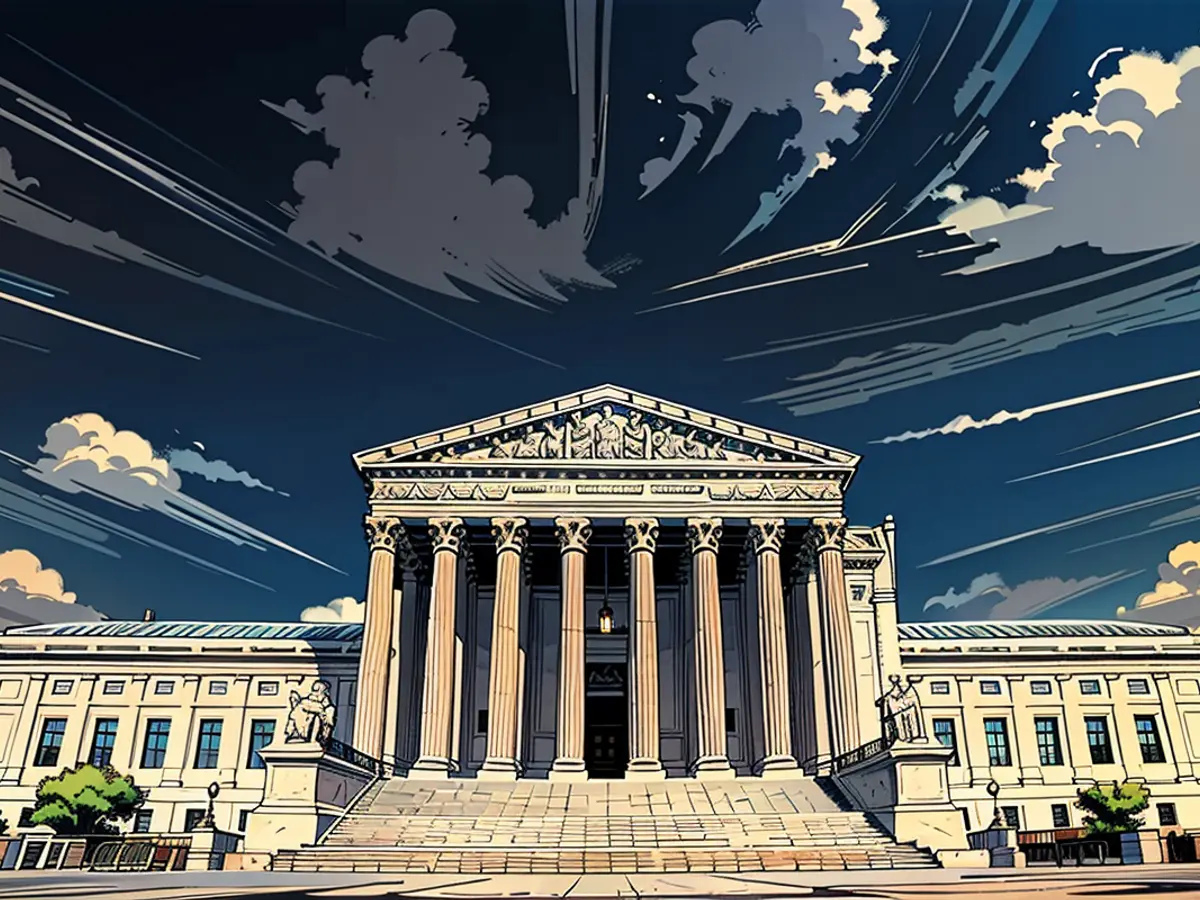The High Court opts out of reviewing First Amendment disputes related to gun showcases and Confederate monument protests.
The gun shop dispute revolved around a Maryland county's regulation demanding that all firearm or ammunition outlets exhibit material concerning gun safety, training, suicide prevention, mental health, and conflict resolution.
Anne Arundel County, situated outside Baltimore, instituted this rule in 2022 with the intention to lessen gun violence following local officials' declaration of suicide as a public health threat. Violations of this regulation initially carried substantial civil penalties.
The Supreme Court declined to engage with this series of cases on Monday without comment, and no dissensions were noted.
A firearm rights association within the state contested the requirement, asserting it illegally forced speech that they partially opposed. However, lower courts validated the rule, labeling it as permissible commercial oversight.
The 4th US Circuit Court of Appeals expressed, in a unanimous ruling in January, that this pamphlet, in totality, tackled suicide as a public health and safety concern, providing gun owners with advice on how to prevent it. The court regarded the pamphlet as conforming to other safety warnings regarding gun storage, which advise gun owners to keep their firearms secure, particularly to discourage misuse and child access.
Confederate statue protest
The justices also opted against considering the case of three individuals who protested a Confederate statue in Gainesville, Texas, who sought to argue their arrests infringed upon the Constitution.
Amara Ridge, Torrey Henderson, and Justin Thompson were apprehended in 2020 during a peaceful march. Law enforcement officials declared the three were detained and convicted for obstructing a public roadway. Authorities asserted that the protesters "repeatedly disregarded" instructions to remain on the sidewalk.
The protesters, with the assistance of the American Civil Liberties Union, argued they temporarily deviated from the sidewalk only once for a "water hazard" and then at the conclusion of the march to return to the courthouse lawn. They claimed the arrests violated their First and 14th Amendment rights.
The case was under appeal from Texas courts, which supported the state's stance.
San Francisco campaign finance law
On Monday, the court also declined to address the politically charged topic of campaign finance regulation by sidestepping a challenge to regulations in San Francisco requiring more disclosure of political donors in campaign ads.
The enacted regulations, approved in a 2019 ballot initiative, mandate that certain political advertising disclose secondary donors – top donors to political committees.
The requirement serves to ensure that people viewing a political ad are informed about the true funding source. However, critics contend that the requirement is overly burdensome, making political advertising impracticable due to the vast amount of information that must be displayed.
A political committee in the city and various others initiated a lawsuit to block the regulations, but lower courts ruled against them. The petitioners requested that the high court decide whether the requirements constitute an "intrusion into core First Amendment political campaign speech."
In light of the gun shop dispute, politicians might discuss the role of firearm regulations in promoting public safety, touching on topics like mental health and suicide prevention. The Supreme Court's decision not to engage with the case has left the requirement for gun shops to display safety materials in place.
Returning to the controversy in Gainesville, Texas, the protestors argued that their First and 14th Amendment rights were violated during their peaceful march against a Confederate statue. Despite support from the Texas courts, this case raised questions about the limits of protesting in public spaces.








